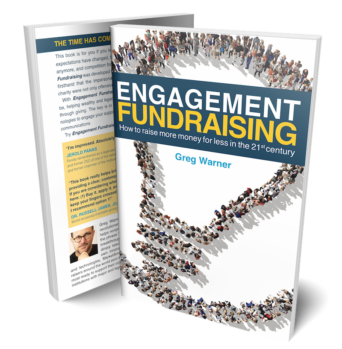We use cookies to ensure that we give you the best experience on our website. By continuing to use this site, you agree to our use of cookies in accordance with our Privacy Policy.
 Login
Login
Your Role
Challenges You Face
results
Learn
Resources
Company
For planned giving marketing…. the difference between suspects, prospects and qualified leads.


Sometimes we need to step back and evaluate our planned giving database objectively. Here are three categories you might consider for your planned giving marketing list:
Suspects- A suspect is a person who is in your database. That’s it. You cannot assume that they have any capacity to make a planned gift or any interest in planned giving. In fact the only good thing about a suspect is that they are in fact in your database. And that must have happened for some reason. But until you learn more about them, they will remain a suspect. No better. No worse.
Suspects are not leads.
Prospects- A prospect is someone that you believe may have the ability to give and may have an affinity for your organization. A prospect is someone you feel may be worthy of possibly targeting for your planned giving marketing efforts.
Prospects are not leads.
Leads- Now we’re getting into a tricky spot. Again, while we have heard many Directors of Planned Giving say, “I have more leads that I can handle,” we do not believe that is really true. The very notion that they have too many leads tells us that these so-called leads are really not worth “handling” at all- at least not until they are truly vetted and qualified.
Indeed they may have a lot of names in their database. And those names may have been run through a qualification system. But does that really make a lead a worthy of engagement? There’s only so much time in a day. You can’t chase every lead.
So a lead is someone you know has the ability to deliver a planned gift to your organization and an affinity for your organization.
For instance, a cancer survivor that you know has a home and other assets with a net value of $70,000 who was cured by a doctor at your hospital has the ability to give and an affinity for your organization. They have given small donations over the years. So they have some money (although they are not super wealthy) and they like you. Plus you know who they are. That makes them a qualified lead.
Ability + Affinity + You Know Who They Are = Qualified Lead
But, qualified leads are not highly qualified, robust leads. We recommend you concentrate even more on those. But more on that in future posts. For now, just make sure not to kid yourself. If you feel you have too many leads, then you might consider a “lead qualification” marketing effort to drill down which leads you should address immediately.
Get smarter with the SmartIdeas blog
Subscribe to our blog today and get actionable fundraising ideas delivered straight to your inbox!

[…] potential qualified leads don’t even know what their needs are until somebody will schedule an appointment with them […]
[…] potential qualified leads don’t even know what their needs are until somebody will schedule an appointment with them […]
[…] Consider planned giving prospects. A donor who has left a planned gift after passing away might not have had the means to donate a major gift during her lifetime. That donor was dedicated to your cause. She decided to allocate a planned gift to your organization in her will, and she ended up making a major contribution when she was able to do so. A basic wealth screening alone will not help your organization find donors like her, but a more well-rounded approach to prospect research can shed much desired light on supporters in her situation. […]